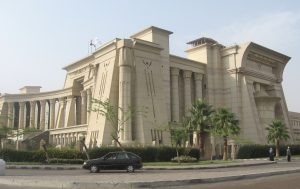New amendments have been introduced to the Executive Regulations (“ER”) of the Capital Markets Law issued by virtue of Law No. 95 of 1992 (“CML”). The aim of the amendments is to provide more flexibility to the Financial Regulatory Authority (“FRA”) to implement its investment policies and tackle the issues that companies face in practice.
On 7 September 2020, Prime Ministerial Decree No. 1760 of 2020 (the “Decree”) amending some of the provisions of the ER was issued. The Decree introduces new easing policies and regulations in the fields of investment funds, tender offers and sukuks.
We guide you through the key highlights of the Decree as follows:
Investment Funds
Under the Decree, banks and companies operating in the field of non-banking financial services may now undertake different types of investment fund activities (i.e. investment funds, private equity funds, debt instrument funds, etc.), provided that the required approvals have been obtained. It should be noted that prior to the Decree, only banks could undertake investment fund activities.
Further, prior to the Decree, private equity funds were only allowed to invest up to 25% of their net assets in one company. However, the Decree abolished this cap and replaced it with the requirement for the fund’s investment manager to diversify the fund’s investments without being restricted by a specific percentage or criterion.
As for real estate investment funds, the Decree introduced new amendments regulating the transactions on real estate assets, the evaluation thereof and related party transactions. In addition, the Decree introduced a new amendment regarding properties through which the funds may invest, whereby such properties do not necessarily have to be registered with the Public Notary Office or registered by virtue of an allocation decision, provided that they are not the subject to any legal disputes.
Finally, the Decree introduced a new requirement for real estate investment funds to appoint only one (previously two) FRA-certified real estate appraisal expert to conduct the period appraisal of the fund’s portfolio.
Tender Offers
Under the Decree, the board of the target company of a tender offer must issue a statement to the FRA evidencing its opinion on the tender offer and the significance thereof to the target company, its shareholders and employees, where such statement is issued by the board of directors after the elimination of the offeror’s votes and its related parties.
Further, the Decree eased documentation requirements for state-owned bidders by removing their obligation to provide a bank certificate evidencing that they have sufficient financial ability to complete the offer. In addition, the grounds for the FRA to reject bidders’ prospectuses have been amended.
As for Mandatory Tender Offers (“MTO”), the ER outlines cases excluded from the submission of an MTO following a notification to the FRA
Sukuks
In addition to the above, the Decree has introduced new definitions of sharia-compliant securities (“Sukuks”), including (i) Istisna’a Sukuk; (ii) Wakala Sukuks; (iii) Muzara’a Sukuks; (iv) Musaqah Sukuks; and (v) Salam Sukuks.
Market Reaction
Dr. Mohamed Omran, head of the FRA, revealed that “the amendments represent a remarkable step in implementing the FRA’s strategic vision in heading towards increasing the efficiency of the Egyptian capital market by introducing facilitations that aim to activate the role of real estate funds, in addition to introducing new finance instruments in the form of Sukuks in order to attract more investments”.
Dr. Omran further noted that “the amendments have targeted boosting private equity funds in order to provide financing to projects, thereby allowing venture capital funds to rejuvenate financially-distressed projects”.



